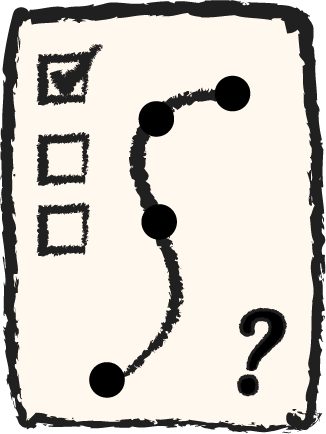The research journey
A typical research project will follow a structured path. Here’s a guide to the process that you’ll typically follow.
1. Getting involved
You contact the Rural Durham Community Research Network team to arrange joining an information session, or attend training, to learn more about the network and the impact community-led research can have.
2. Developing a research question
With support, you shape a question around a local issue, challenge, or opportunity related to health and wellbeing, public services, or opportunities for young people or another topic that matters to your community in Weardale, Teesdale, or Derwent Valley.
3. Planning your research
You work with Durham Community Action and Durham University to turn your question into a practical research plan.
4. Reviewing the plan
The plan is checked to ensure it’s inclusive, fair, and meets key research standards.
5. Getting funding
If approved, your plan receives funding. If not, you can continue developing it with support.
6. Meeting your support team
You’re introduced to your Durham University research mentor and other community researchers in the network, and agree how you’ll stay in touch to support each other and share learning.
7. Doing the research in your community
You invite local people to take part in your research as participants. Listen to people’s views and experiences, and record what you learn.
8. Understanding your findings
You review what the research shows and reflect on what it means, whilst keeping in touch with everyone involved.
9. Linking research to decisions
You explore how your findings could support change or inform local decision-making.
10. Sharing the results
You share your findings and anything you've learnt with the community, services, decision-makers, funders, and network members.










